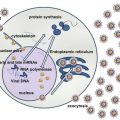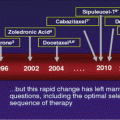Fig. 1
Incidence of the top cancers per HDI
The lifestyles in many developing countries in the tropics are in a state of transition from traditional to “modern,” with its associated industrialization, urbanization, and cultural readjustment. Infectious diseases are giving way to noncommunicable diseases, such as cardiovascular diseases, adult-onset diabetes, cancers, trauma, and noninfectious respiratory diseases, as major causes of morbidity and premature mortality [11].
The cancer transition can be regarded as an extension or a completion of Omran’s theory on epidemiological transition. In analogy with the third stage of epidemiological transition—a shift from infectious to noncommunicable diseases—the theory of cancer transition sees a shift from a predominance of cancers linked to infections to cancers associated with risk factors that are mainly noninfectious and possibly related to a so-called western lifestyle [12].
References
1.
Newton RW, Wakeham K, Bray F (2014) Cancer in the tropics. In: Jeremy F, Nicholas JW, Peter JH, Thomas J, David L, Gagandeep K (eds) Manson’s tropical diseases, 23rd edn. Sauders, Philadelphia, pp 879–893CrossRef
2.
IARC (2014) GLOBOCAN 2012: estimated cancer incidence, mortality and prevalence worldwide in 2012, Section of cancer information. IARC, Lyon
3.
Walkeham K, Newton R, Sitas F (2013) Cancer in the tropics. In: Alan JM, Adward TR, David H, Tom S (eds) Hunter’s tropical medicine and emerging infectious diseases, 9th edn. Elsevier, Philadelphia
4.
Peto J (2001) Cancer epidemiology in the last century and the next decade. Nature 411(6835):390–395CrossRefPubMed
Stay updated, free articles. Join our Telegram channel

Full access? Get Clinical Tree





